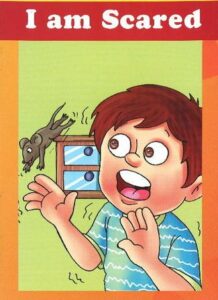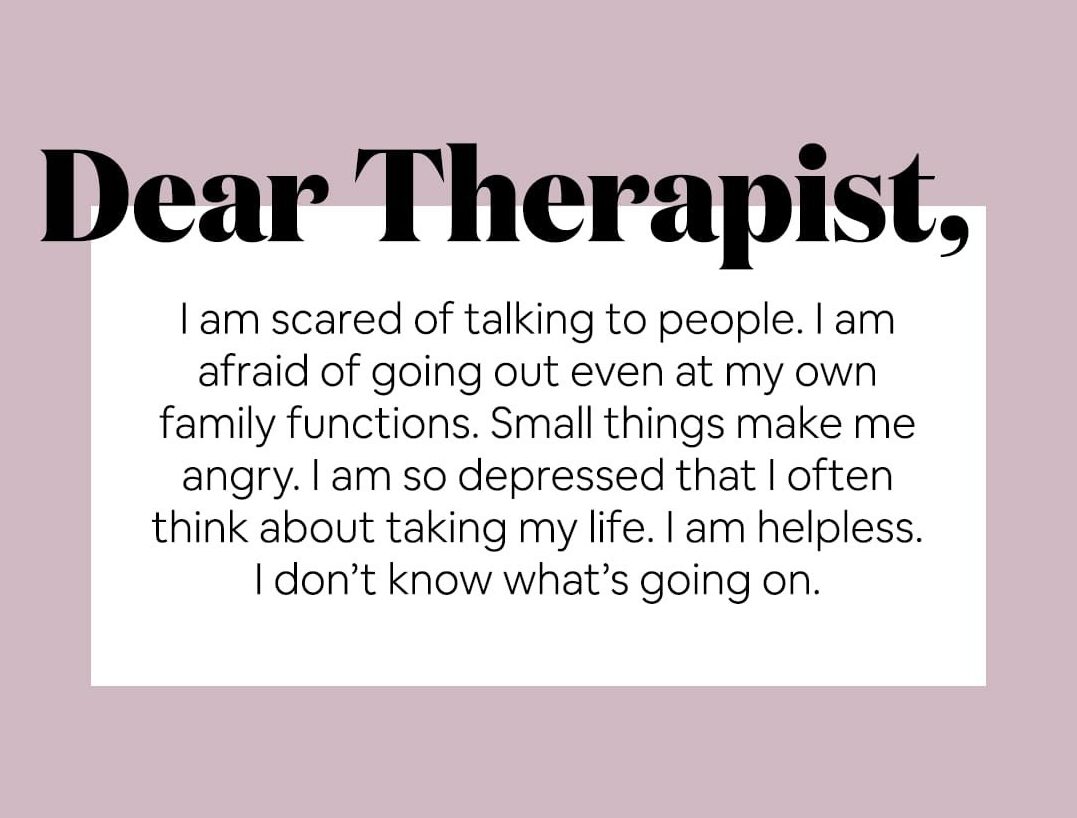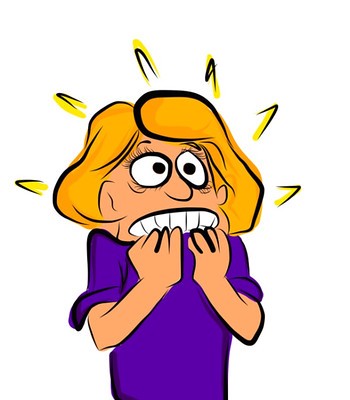Do you ever feel like you’re frozen with fear or feel that am scared? That’s a very common feeling, and it can be paralyzing. Fear is one of the most primitive emotions that we experience, and it can sometimes seem overwhelming. In this blog post, we will discuss what fear is, the different types of fear, how to deal with fear, and self-help tips. If you are struggling with fear, please don’t hesitate to reach out for help!
Contents
Understanding Fear

Fear is an emotion that we experience when we are faced with a threat. It is a survival mechanism that is hardwired into our brains. When we feel fear, our body responds by releasing adrenaline and cortisol. These hormones prepare us to fight or flee from the perceived threat. We may also experience physical symptoms such as increased heart rate, sweating, and difficulty breathing. Fear is a normal and healthy emotion that helps us to stay safe.
Brain Activity During Fear Response
The amygdala is the part of the brain that is responsible for our fear response. When we are faced with a threat, the amygdala sends a signal to the hypothalamus. The hypothalamus then activates the sympathetic nervous system. This system releases adrenaline and cortisol into our bloodstream. These hormones increase our heart rate and blood pressure and prepare our muscles for action.
Types of Fear

There are different types of fear, including, fear of the:
- Unknown: This is when we are afraid of something that we have never experienced before.
- Failure: This is when we are afraid of not being good enough or not measuring up.
- Success: This is when we are afraid of succeeding because it may mean change or responsibility.
- Rejection: This is when we are afraid of being rejected or not being good enough for someone.
- Intimacy: This is when we are afraid of getting too close to someone because it may lead to pain or hurt.
- Death: This is when we are afraid of dying or losing someone we love.
Signs and Symptoms
Fear can manifest in different ways, both physically and emotionally. Some common signs and symptoms of fear include:
Physical Symptoms
- Nausea
- Sweating
- Trembling
- Headaches
- Tense muscles
- Muscle tension
- Difficulty breathing
- Increased heart rate
- Feeling dizzy or lightheaded
Emotional Symptoms
- Panic
- Anxiety
- Irritability
- Insomnia
- Nervousness
- Avoidance behaviors
- Difficulty concentrating
Causes and Risk Factors
There are many different causes and risk factors for fear. Some common ones include:
- Brain chemistry: Imbalances in our brain chemistry can sometimes cause fear.
- Personality: Some personality types are more prone to anxiety and fear than others.
- Genetics: Fear can be passed down from our parents or grandparents through our genes.
- Life experiences: We may develop fear after experiencing a traumatic event or witnessing someone else experience trauma.
Dealing With Fear

If you’re struggling with fear, there are some things you can do to help yourself. Here are some self-help tips and tools to help yourself:
Self-help Tips
- Identify your triggers: What are the things that trigger your fear? Once you know what they are, you can start to avoid them or prepare for them.
- Challenge your thinking: When we’re afraid, our thinking can become negative and distorted. Try to challenge your negative thoughts by asking yourself if they are true.
- Breathe: When we’re afraid, our breathing becomes shallow and fast. This can make us feel even more anxious. Try to take slow, deep breaths to calm yourself down.
- Talk to someone: It can be helpful to talk to someone who understands what you’re going through. They can offer support and guidance.
Self-help Tools
Some self-help tools can help deal with fear. Some of these include:
- Books: There are many different books about fear, anxiety, and overcoming adversity. Reading can be a great way to learn more about your fear and how to deal with it.
- Online resources: There are several websites and online forums that can offer support and information about fear.
Self-help Techniques
If you’re struggling with fear, some self-help techniques can be helpful. Some of these include:
- Relaxation techniques: Relaxation techniques can help to reduce anxiety and stress. Examples of relaxation techniques include deep breathing, progressive muscle relaxation, and visualization.
- Mindfulness: Mindfulness is a practice that helps us to focus on the present moment and be aware of our thoughts and feelings without judgment.
- Meditation: Meditation is a practice that helps us to focus on the present moment and be aware of our thoughts and feelings without judgment.
- Exercise: Exercise can help to reduce stress and anxiety. It can also help to improve our mood and sleep.
Talking To a Professional

If you’re struggling with fear, you may want to consider talking to a professional. A therapist can help you to understand your fear and work through it. They can also provide support and guidance.
Therapies
If you’re struggling with fear, some therapies can help. Some of these include:
- Cognitive-behavioral therapy: This type of therapy can help you to identify and change the negative thoughts and behaviors that are contributing to your fear.
- Exposure therapy: This type of therapy involves gradually exposing yourself to the things you’re afraid of in a safe and controlled environment.
If you’re considering therapy, it’s important to find a therapist who you feel comfortable with and who has experience treating people with your type of fear. It may take some time to find the right therapist, but it’s worth the effort.
Medication
In some cases, medication may be necessary to help you deal with your fear. If you have severe anxiety or your fear is interfering with your ability to function, medication may be an option.
Some common medications that are used to treat fear include:
- Anti-anxiety medication: This type of medication can help to reduce the symptoms of anxiety and fear.
- Antidepressants: These medications can help to improve mood and reduce anxiety.
There are many different types of anxiety medications, so it’s important to work with your doctor to find the one that’s right for you. Medication can help reduce your symptoms and make it easier for you to participate in therapy.
Conclusion
Fear is a normal and common emotion. However, when it starts to interfere with our daily lives, it can become a problem. If you’re struggling with fear, there are several things you can do to help yourself. Talk to your doctor or a mental health professional if you need more help.
A Word From Therapy Mantra
Your mental health — Your psychological, emotional, and social well-being — has an impact on every aspect of your life. Positive mental health essentially allows you to effectively deal with life’s everyday challenges.
At TherapyMantra, we have a team of therapists who provide affordable online therapy to assist you with issues such as depression, anxiety, stress, workplace Issues, addiction, relationship, OCD, LGBTQ, and PTSD. You can book a free therapy or download our free Android or iOS app.


